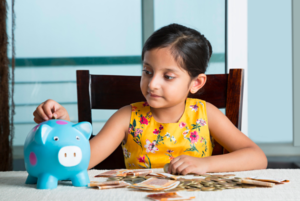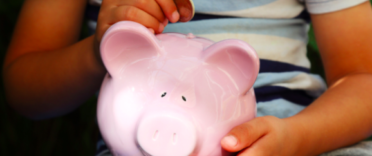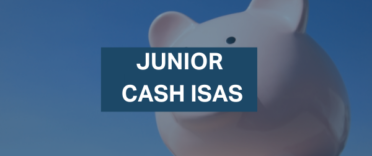
What is a Junior SIPP?
A Junior SIPP is a type of pension for children that is managed by a parent or legal guardian until the child turns 18. A SIPP - or Self Invested Personal Pension to give it its full title - is simply a type of personal pension that has certain tax benefits and allows investors to manage their own investments. A Junior SIPP works in exactly the same way as a standard SIPP, but with an annual gross contribution limit of £3,600, providing a tax-efficient way of saving towards your child's retirement. We explain how a Junior SIPP works in more detail in the next section, however, if you want to know more about how SIPPs work, check out our article "What is a SIPP and how does it work?"
How does a Junior SIPP work?
A Junior SIPP allows a parent or legal guardian to set up, manage and contribute towards a child's pension. The annual contribution limit of £3,600 includes basic rate tax relief of 20% - even though the child is a non taxpayer - meaning investors only need to contribute £2,880 each year in order to reach the maximum annual contribution limit. The £720 tax relief will automatically be added to the Junior SIPP. All money invested in a Junior SIPP grows free of income tax and capital gains tax.
It is the parent or guardian's responsibility to set up and manage the children's pension until the child reaches 18, at which point ownership will pass to the child and they will take on the responsibility of managing the pension, including deciding on how and where the funds are invested. Rules stipulate that money in a Junior SIPP cannot be accessed until age 55 at the earliest, but there are proposals by the government to increase the age at which people can access their pension to age 57 from April 2028 and so the reality is that the money is likely to be locked away until at least age 57.
Who can set up a Junior SIPP?
Only a parent or legal guardian can set up a Junior SIPP on behalf of a child and it can be set up from the day that they are born. If the child is over the age of 16 they may be required to give consent and so could be asked to sign any relevant paperwork.
Who can contribute to a Junior SIPP?
Anyone can contribute towards a Junior SIPP up to the maximum contribution limit of £3,600. As a Junior SIPP attracts tax relief at 20%, the actual total amount of money that can be deposited into a Junior SIPP for the tax year 2024/25 is £2,880.
Junior SIPPs cost comparison
In the table below we compare the best and cheapest Junior SIPPs, paying particular attention to the platform fees and the cost of placing trades. Scroll right to view the full table.
Junior SIPP comparison table
| Provider | Fees | Cost per fund transaction | Cost per share trade | Cost to invest £5,000 | Cost to invest £10,000 | Cost to invest £25,000 | Cost to invest £50,000 | Cost to invest £100,000 |
| AJ Bell | 0.25% up to £250,000, 0.10% on £250,000 to £1m and no charge for anything over £1m (Max charge of £120 per year if investing in shares) | £1.50 | £5.00 | £13 | £25 | £63 | £125 | £250 |
| Bestinvest | 0.20% up to £500,000, 0.10% on £500,000 to £1m and no charge for anything over £1m (Fee based on a ready-made portfolio. No SIPP fee for Junior SIPPs) | Free | £4.95 | £10 | £20 | £50 | £100 | £200 |
| Fidelity | No charge on Junior accounts | Free | £7.50 | £0 | £0 | £0 | £0 | £0 |
| Hargreaves Lansdown | 0.45% up to £250,000, 0.25% on £250,000 to £1m, 0.1% on £1m to £2m and no charge for anything over £2m (Max charge of £200 per year if investing in shares) | Free | £5.95 | £23 | £45 | £113 | £225 | £450 |
Which is the best Junior SIPP?
There are relatively few children's pensions on the market currently and we have concentrated our research on the products that are marketed as 'Junior SIPPs'. However, some other pension providers (such as insurance companies) do allow minors to hold a personal pension with them, so long as the application is made by a parent or legal guardian and the correct paperwork is completed. If you already hold a personal pension with a particular provider then it is worth getting in touch with them to check if they offer children's pensions.
Of the four providers we have compared, Fidelity provides the best overall Junior SIPP, due to its slick application process and low cost. Those looking for a provider that has a good reputation for innovation, research, a great mobile app and no fees when investing in a Junior ISA, may want to consider Hargreaves Lansdown.
Which is the cheapest Junior SIPP?
Fidelity does not charge a platform fee for its children's pension meaning it is the cheapest Junior SIPP for most people. Those looking to regularly trade shares may be better looking at Hargreaves Lansdown or AJ Bell as the cost for trading shares is much lower.
Alternatives to a Junior SIPP
A Junior SIPP is just one of the options available to you when it comes to saving money for your children. Others include:
- Children's Savings account - Many banks and building societies offer savings accounts that are specifically designed for children. Many will have preferential rates for the first 12 months up to a certain savings limit, for example, 5.0% interest on the first £5,000. Check out the Best Children's Savings Accounts in our best buy article
- Junior ISA - A long term savings account that provides tax-free growth. Invest up to £9,000 per annum (for the 2024/25 tax year.) The child can take control of the Junior ISA account from the age of 16 and can access the cash at age 18. Check out our article 'Best Junior Stocks and Shares ISAs'
- NS&I Premium bonds for children - Premium bonds provide an opportunity to win tax-free prizes each month of between £25 and £1m. Premium bonds do not attract interest, however, the total prize pool equates to a 'notional' interest rate of roughly 4.00%
Check out our article 'Investing for children: What are your options?' for more ideas on how to save towards your child's future.
Who is a Junior SIPP good for?
- Parents who either already have a Junior ISA or who are uncomfortable with their child getting access to savings when they turn 18
- Parents who want to educate their children about investing and the benefits of saving money over the long term
- Parents or grandparents looking to pass on gifts with a view to reducing their estate for inheritance tax purposes



